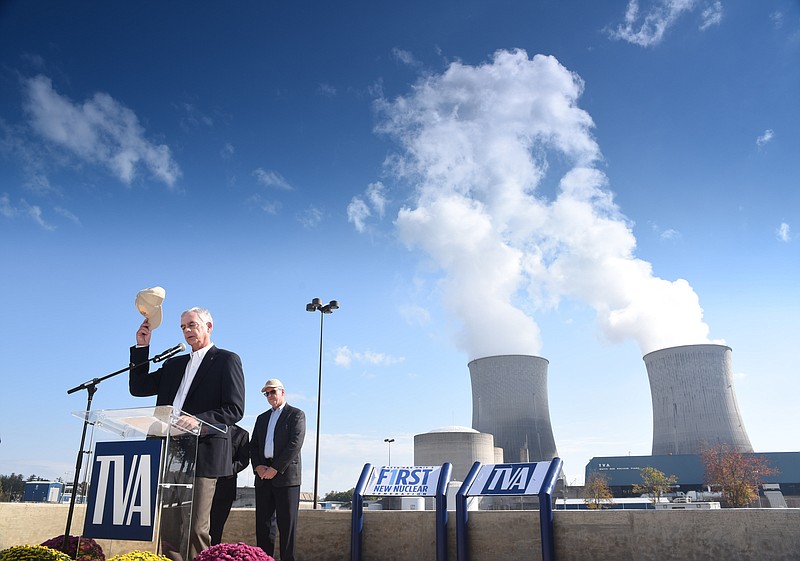Milder springtime weather this year cut residential and commercial power consumption in the Tennessee Valley by 1.5 percent and trimmed TVA's net income by nearly 20 percent compared with a year ago in the three months ended June 30.
But higher electricity prices and fuel cost adjustments still boosted revenues for the Tennessee Valley Authority in its most fiscal quarter.
The Tennessee Valley Authority said today it earned $233 million on electricity sales of $2.57 billion in the past three months. In the same period a year ago, TVA earned $291 million on $2.48 billion of sales.
Through the first nine month of TVA's fiscal year, the federal utility reported net income of $546 million on nearly $7.7 billion in revenues. TVA revenues were up 4.6 percent from the prior year due to higher power rates, but net income was off by 4.5 percent.
Power sales were down to local power companies such as Chattanooga's EPB due to milder weather and increasing energy conservation in the first half of the year. Although industrial power sales to major businesses directly served by TVA jumped by nearly 18.6 percent from a year ago due to the growing economy, those gains didn't generate additional power sales to residential and commercial customers due to milder temperatures and more energy-efficient appliances, furnaces and machines.
With more energy-efficient equipment in most homes and businesses and more self-generated power from solar, wind and other sources, TVA doesn't forecast the need to build any major new baseload power plants for at least another decade.
Although rainfall in the Tennessee Valley has been above average so far in calendar 2017, hydroelectric generation by TVA - the cheapest source of power for the utility - was still down for the first nine months of the fiscal year. Runoff during the first nine months of 2017 was 23 percent below normal from the drier-than-normal end of 2016, resulting in conventional hydroelectric generation being 22 percent lower during the first nine months of the current fiscal year compared to the same period of the prior year.
"While conditions improved in the third quarter, our financials continue to reflect the warm, dry conditions and lower hydroelectric output in the first half of the fiscal year, along with higher average natural gas prices," TVA Chief Executive Officer Bill Johnson said in a statement today.
Operating and maintenance expenses were up $73 million in the first nine months of this fiscal year, or 4 percent higher, compared to the same period last year, driven by higher planned nuclear and other outage expenses, partially offset by labor and other cost reductions.
TVA's newest nuclear reactor, the Unit 2 reactor at its Watts Bar Nuclear Plant, is returning to power generation this week. But the unit was out of service during the entire spring fiscal quarter while crews repaired a ruptured condenser that broke apart when support beams failed at the reactor on March 23.
Despite that outage, TVA Chief Financial Officer John Thomas said TVA maintained its operating cost savings from previous years to help hold down rates lower than they otherwise would have been with higher natural gas prices and other fuel costs.
"The efficiencies we gained through the past several years reduced our annual operating expenses by over $800 million. This is especially important in a year like 2017 when we have more challenging operating conditions," Thomas said "We are committed to maintaining low rates and managing debt prudently, and our year-to-date financial results reflect that."
Even without generation from its newest reactor, TVA's power generating portfolio continued to become cleaner with the start up of the Paradise natural gas combined-cycle in April and the installation of the first selective catalytic reduction system at its Gallatin Fossil Plant in June. A second SCR was added at Gallatin in July.
TVA said new coal scrubbers and SCRs should become operational at Units 1 and 4 at the Shawnee Fossil Plant by this fall.
